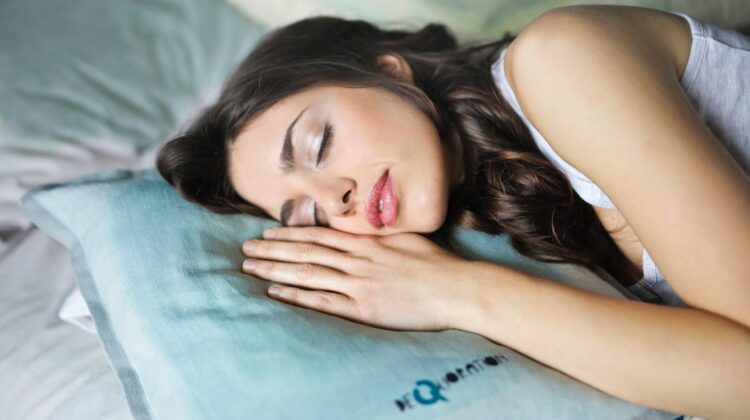
Do you ever feel like your life is one long day of to-dos? You’re not alone — it’s easy to feel overwhelmed when our minds are running a mile a minute. In order for us humans to function at our best, we need both rest and sleep – but is rest the same as sleep?
To answer that question, let’s take an in-depth look into what exactly rest and sleep mean, how they differ from each other, and tips on getting the most out of both so you can be your best when you wake up.
Is rest the same as sleep? Let’s find out.
Table of Contents
What is Rest?
Rest is a period of relaxation or inactivity that us stay healthy and productive. During rest, both the body and mind try to recover from physical and mental exertion. Rest allows us to recharge so we can take on new challenges with renewed energy.
Definition of Rest
Rest refers to any activity that provides relief from physical or mental stress, such as taking a nap, reading a book, meditating, listening to music, or engaging in light exercise. It also includes activities like sleeping late on weekends or taking regular breaks throughout the day.
Benefits of Rest
Regular rest helps improve overall health by reducing stress levels and improving cognitive function. Studies have shown that getting enough rest boosts immunity, reduces inflammation, improves moods and concentration levels, and enhances creativity and problem-solving skills. It even lowers the risk for certain diseases like heart disease and diabetes.
Additionally, rest has been linked to better sleep quality at night which leads to improved alertness during the day.
Types of Rest
There are several different types of rest including:
- Active recovery (light exercise).
- Passive recovery (relaxation techniques).
- Napping (short periods of sleep during the day).
- Deep sleep (longer periods at night).
Active recovery helps reduce fatigue while passive recovery aids in calming down both physically and mentally after strenuous activities.
Napping offers quick bursts of energy when needed most, and deep sleep gives your body enough time to repair itself overnight so you wake up feeling refreshed each morning.
Rest is an important part of our daily lives and can provide many physical, mental, and emotional benefits. Now let’s explore what sleep is and how it differs from rest.

(Source)
What is Sleep?
Sleep is a natural state of rest for the body and mind. It is essential to physical and mental health, allowing us to recharge our energy levels and restore our bodies. Recuperative sleep helps regulate hormones, boost immunity, improve memory, reduce stress levels, enhance creativity, and increase alertness.
Definition of Sleep
Sleep is a period of unconsciousness in which the body repairs itself while the brain rests. During recuperative sleep, we go through two stages: light sleep (non-REM) and REM sleep (deep sleep).
Good sleep has numerous benefits for both physical and mental health.
- Lower stress levels from calming hormones like serotonin and melatonin.
- Improved cognitive performance.
- Better immune function to help fight off infection.
- Increased alertness during waking hours.
- Enhanced creativity through dream recall.
- Regulated hormone production for better overall health.
- Improved memory formation during REM cycles.
- Reduced inflammation from long hours of being awake.
Getting a good sleep every night is essential for physical and mental health. But is rest the same as sleep?
Is Rest The Same as Sleep?
It’s easy to confuse rest and sleep. After all, they both involve stopping physical activity. However, rest is quite different from actual sleep.
Physical Differences
Physically, rest is the body’s way of recovering from exertion or stress while still remaining alert. During a short nap, the body may be still but the mind remains active and alert to its surroundings.
On the other hand, sleep involves a complete shutdown of physical activity as well as mental activity for an extended period of time. It is a state of unconsciousness where one does not respond to external stimuli.
Mental Differences
Mentally, a short nap can help reduce stress levels by taking some time away from daily activities without completely disconnecting from reality. It allows for moments of relaxation while maintaining awareness so that one can return quickly back into action if needed.
In contrast, quality sleep helps restore mental energy by providing an opportunity for deep reflection on experiences during the day before entering into a dreamland where creativity flows freely.
Biological Differences
Biologically, rest is regulated by hormones such as cortisol which indicate when we should reduce our body’s activity in order to conserve energy reserves.
On the other hand, sleep is primarily regulated by melatonin which signals us when it’s time to shut down all systems until morning comes again.
Moreover, different parts of our brains become activated during each state. Areas associated with problem-solving are more active during periods of rest while those related to memory formation become more active during periods of sleep due to increased production of serotonin and dopamine respectively.
In the next section, we will explore strategies for getting quality rest and sleep as well as tips for maximizing the benefits sleep offers.
How to Get the Most Out of Rest and Sleep
Getting actual sleep is essential for overall health and well-being. But it can be difficult to achieve as many of us have busy lives that don’t always allow for adequate amounts of snooze. Fortunately, there are strategies we can use to maximize the benefits sleep offers.
The first step is creating a consistent routine. Going to bed at the same time each night helps your body fall asleep on a regular schedule so it knows when it’s time to wind down and relax.
Avoid consuming caffeine late in the day so you can fall asleep more easily at night.
Another deterrent to good sleep is screen time. Limit the amount of time you spend on your phone or computer before bed so you can drift off faster.
To make sure you’re getting enough restful sleep, try taking naps during the day or meditating before bedtime to clear your mind from any worries that might be keeping you up at night.
Consider hanging blackout curtains or wearing an eye mask if the light is preventing you from staying asleep. This will block out all external light sources so your body won’t be disturbed when you’re trying to get some shut-eye.
Finally, invest in a comfortable mattress and pillow to ensure a good night’s sleep.
Conclusion
So, is rest the same as sleep?
Rest and sleep are two different things. Rest is a state of relaxation that can be achieved through activities such as reading or listening to music, while sleep is a deeper level of unconsciousness that allows the body and mind to recharge.
To get the most out of both rest and sleep, it’s important to create healthy habits like avoiding screens before bedtime, going to bed at the same time each night, and investing in comfortable bedding.
Are you struggling to get a good night’s rest? Are you feeling tired and exhausted all day long? WakeUpFresh.com is here to help!
Our comprehensive guides will provide tips, tricks, and information you need to improve your sleep quality so that you can wake up feeling refreshed each morning. Don’t let another night go by without getting the restful sleep that your body needs – visit us today for helpful solutions on how to make sure every night of shut-eye is its best!